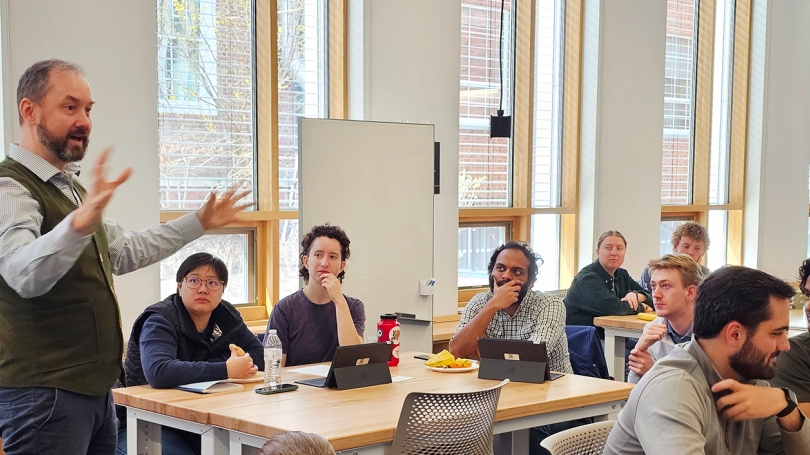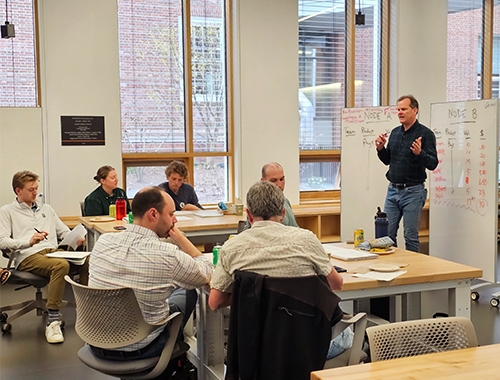

At the end of April, the Irving Institute piloted its first Electricity Grids & Markets Bootcamp for graduate students, which was designed to equip students with an in-depth understanding of this critical backbone of daily life in the United States. Participants came from a range of Dartmouth schools and programs, including:
Led by industry experts–Jay Matson '91 from the Federal Energy Regulatory Commission (FERC) and Rimvydas Baltaduonis from Stanford University and Gettysburg College–the workshop featured dynamic and interactive instruction, starting with an overview of critical infrastructure and then shifting to a deeper exploration of market structures, federal regulations, and key challenges such as transmission interconnection and congestion. Students then engaged in hands-on simulations that immersed them in the complexity and challenges of running and regulating a critical component of daily life in the United States.

Reflecting on the immersive market simulation, one graduate student noted, "It was great to get hands-on experience with markets and bidding. The camp left me wanting to learn more."
Students also gained insights into the role of FERC in regulating wholesale electricity markets. Participants delved into rule-breaking and compliance strategies within the industry and posed challenging questions to experts directly involved in electricity market regulation and analysis.
One participant remarked, "The bootcamp helped clarify the structure and functioning of the U.S. electricity market–including concepts like organized markets, LMP (locational marginal pricing), and different types of electricity products (energy, capacity, ancillary services)."
"We are thrilled that members of Dartmouth's growing graduate energy community hailing from engineering, finance, and more found such strong value in this pilot program," said Irving Institute Academic Director Amanda Graham. "There is no substitute for real-world insight, and our long-time partners brought the challenges and opportunities of today's electricity systems to life for our students. We are so grateful for their dedication and expertise."
We extend a heartfelt thank you to our visionary bootcamp leaders and instructors: